Like a diver gone a bit too deep and for a bit too long, now desperate to get to the surface to suck in some oxygen, Israelis reveled in the news of the rescue of the four hostages on Shabbat. It had been a long, long time since there had been any substantive good news around here, and though everyone understood that the rescue doesn’t in any way change the strategic quagmire in which Israel is still very stuck, the rescue still evoked scenes of sheer joy and pride.
YNet, Israel’s most-read Hebrew news website, posted a string of scenes from different beaches and pools where the rescue was announced on Shabbat. You can view it above. We’ve subtitled it for our readers.
But there was, of course, a horrific price. Arnon Zemorah, z’’l, for whom the operation was immediately renamed (Operation Arnon), was mortally wounded in battle and died soon thereafter. The army released this now ubiquitous photo of him, apparently not from the day of the operation in which he gave his life.
The funeral was yesterday afternoon, at the military cemetery on Mount Herzl.
Almost as soon as my brother and I had gotten out of the taxi at Mount Herzl and had started the walk to the section of the cemetery where the funeral would take place, he realized that he’d left his phone in the cab. We were pretty confident that we’d get it back—we’d taken a Gett (Israel’s equivalent of Uber) and had the driver’s number. He didn’t answer right away, but we left a message or two and asked him to drop it off at my house, where he’d picked us up. I told him, of course, that we’d pay him whatever it cost to have him drive back to our part of town.
And, as my brother pointed out, it didn’t really matter if he got the phone back. A funeral like that is a reminder of what matters—and what doesn’t.
The funeral, as expected, was packed. I don’t know how many people were there, but it was easily in the thousands. We’d gotten there pretty early, which meant that we really couldn’t see how far back the crowd extended, but when we left almost two hours later, it took forever to get out of the cemetery. There was value to the snail’s pace of the exit, though—we walked past row after row after row of gravestones that all had the same date of death: 07.10.2023.
Next to a few of those graves, there were people sitting on the ground, head buried in their arms on the stones, sobbing uncontrollably. As if the horror of the funeral hadn’t been enough.
Shortly before the funeral began, there was an announcement. The funeral would be filmed by the military unit’s photographers, and out of security concerns (these were all undercover units, so the Yamam and other forces did not want pictures of those in attendance making their way around), no one else was to take pictures of any sort.
“What’re the chances of that?”, I asked myself. Thousands and thousands of Israelis at what was likely a historic funeral, and they’re being asked not to use their phones to film?
I confess to having been astounded. For the almost hour and a half that the actual funeral lasted, I didn’t see a single person take a single picture.
It’s dangerous work these men do, people understood. And if we’re being asked not to photograph them, given the risk to which they willingly subject themselves, then we don’t photograph them. Period.
I’d never seen such a compliant Israeli crowd.
Anywhere. Ever.
It was a hot day, and it was a long funeral. I don’t recall exactly how many people spoke—maybe a dozen? Numerous commanders of the Yamam unit in which Arnon Zemorah z’’l had served. Soldiers who served under him. The uncle of one of the hostages he helped free. His best friend. His mother. His brother. His wife.
The soldiers—his commanders and those who served under him—struggled to hold back tears, and as they did, you could see people in the crowd doing the same. It was only towards the end that it was more than people could bear.
I’d wondered for a moment if any of the four freed hostages would speak, though it seemed like a lot to ask of them one day after eight months of terrifying captivity. But when the MC of the funeral announced that Aviram Meir, the uncle of Almog Meir Jan, would speak, an already hushed crowd grew utterly silent. He said what you’d expect. How deeply indebted they were to all the people (there were hundreds of soldiers involved) who risked their lives to free his nephew and the others. When his voice began to shake, so filled with gratitude that he could barely speak, then I saw people begin to remove their sunglasses, and wipe their eyes.
I was struck by the fact that both his best friend and his wife told how they knew he’d been rehearsing this operation for weeks. That every day, he and his men tweaked the planning just a bit. That when they asked him if he was confident it would work, he assured them that he had no doubt. “It’s a just operation, and it will succeed,” he said to them.
It was, and it did.
But what a horrifying price.
As has been widely reported, Zemorah’s wife, Michal, had asked to speak last. It was a beautiful eulogy, not surprisingly. But what no one who was there will ever forget was the moment that she took out her phone and said as follows:
“Noam and Itai [their sons] are not here, but they nevertheless asked that their voices also be heard.”
Then she played a recording. First one son, then the other.
“Abba, I love you and I miss you.”
“Abba, I love you.”
All you have to do is look at the officer standing just to her left, and see his reaction, to know how the thousands of others also responded.
It was literally unbearable.
Before the funeral, his wife had posted a short message on Facebook, which quickly went viral:
Everything is now filled with the image of the fallen hero, Chief Inspector Arnon Zamora, z’’l. But long before he was a warrior and a hero, he was a sweet and charming man. An amazing partner, a perfect father. A loving and beloved man.
That’s how we’ll remember him, and I’d love for you to, too.
When my brother and I got back to my place after the funeral, his phone was waiting for us at our neighbor’s. My brother immediately texted the driver to thank him, and to ask him how much to pay him via Bit (our Venmo).
A short while later, he got this text back from the driver:
“There’s no need, but thanks. You went to Mount Herzl to pay respects to a great warrior.”
It was a horrible day, but it was also a day of being reminded, time and time and time again, what this nation is made of.
And then, today, the news has been filled with reporting about the funeral, as well as the planned vote over whether Haredi men should be granted exemptions from the draft. Netanyahu, desperate not to lose the Haredi parties from his coalition, is trying another trick to get the bill that would extend the exemption voted on.
It’s actually unfathomable. The day after Arnon Zemorah z’’l was buried and the Israeli people were reminded of the greatness that has built this nation, of so many people’s selflessness and devotion to this country and the Jewish people, the PM will once again demonstrate how much more he cares about his coalition than he does about the state he is supposed to lead. A day after the entire nation marked the exceptional sacrifice of an extraordinary man, there are those who will do whatever they can to enable thousands of others to shirk their responsibility.
If yesterday we were speechless because we were trying not to weep, today we’re speechless because we’re busy trying to imagine—to imagine an Israel in which our elected leaders had even a fraction of the devotion to this nation that Arnon Zemorah z’’l did.
יהי זכרו ברוך
May his memory be a blessing.


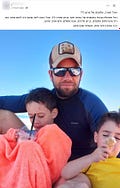
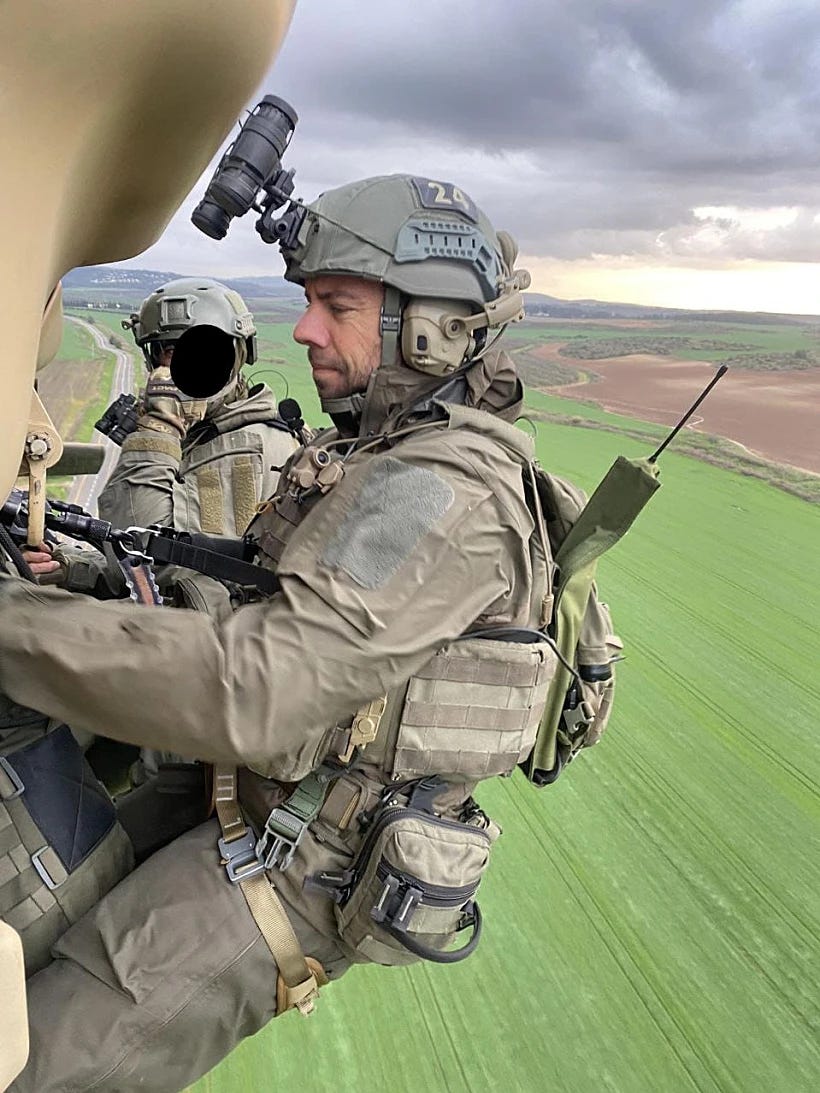

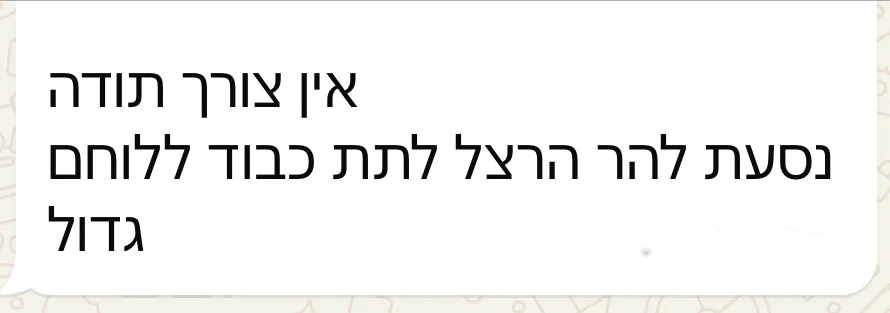
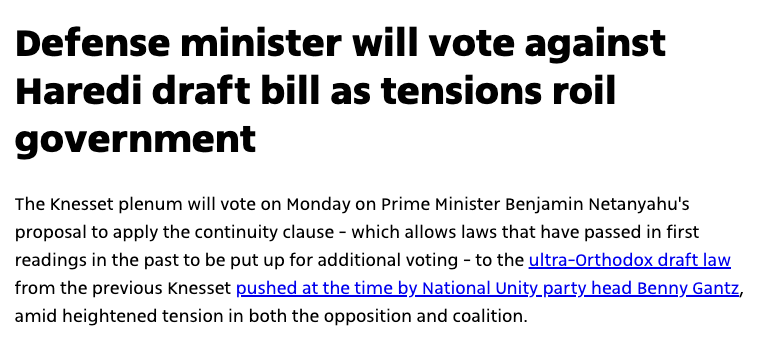
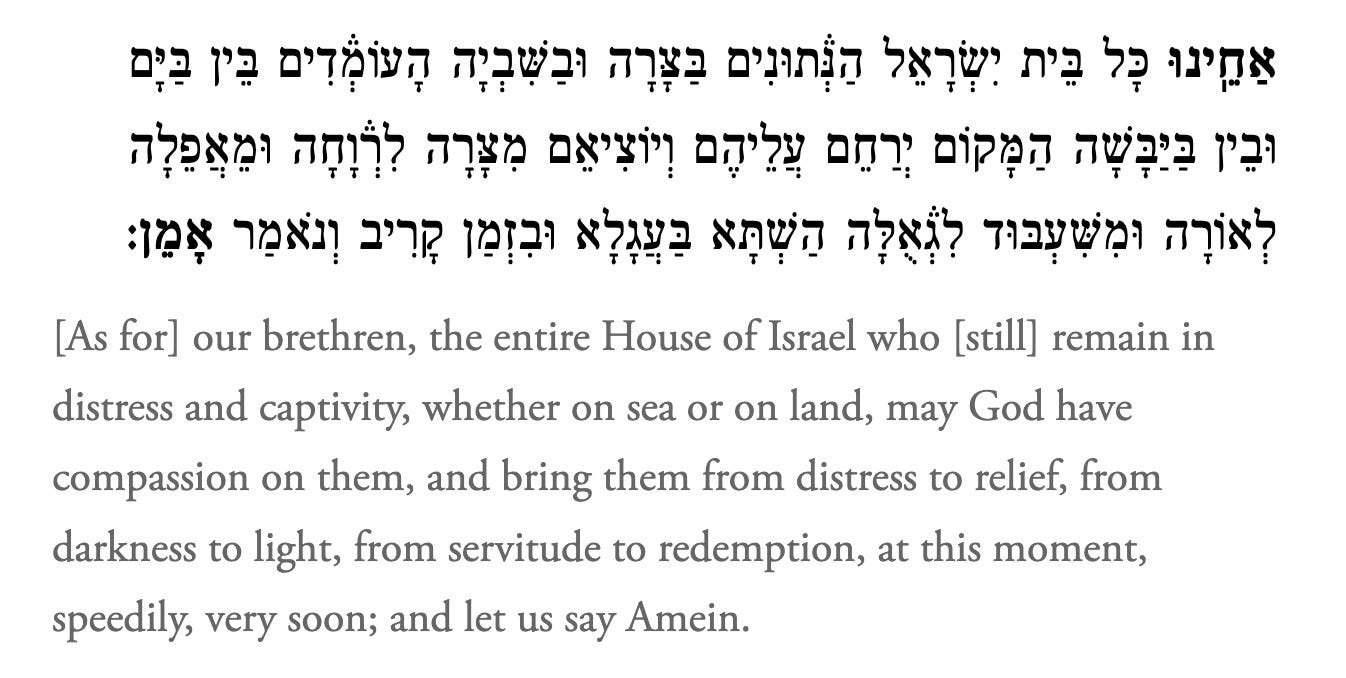










"He was a sweet and wonderful man, a fabulous partner and a perfect father. That's how we'll remember him, and hope you will, too."